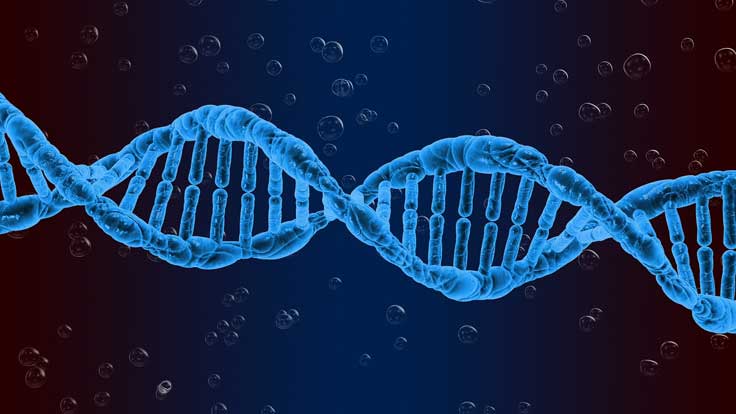
Purchase Tickets
Beyond Ethnic Pie Charts – Considering DNA Testing
March 19, 2019

This is part of our Midwestern Roots blog series, where we’ll be sharing exciting sneak peeks and information about the conference. Midwestern Roots Family History and Genealogy Conference will take place July 19 and 20 with preconference workshops on July 18. Find out more about Midwestern Roots and all the local and nationally-renowned speakers we have lined up for you as well as the a la carte preconference workshops in the Midwestern Roots Registration Guide.
On the fence about taking a DNA test?
As Midwestern Roots 2019 featuring Blaine T. Bettinger Ph.D., J.D., The Genetic Genealogist approaches, I want to share some information for beginners, those who have their results and other resources to learn about genetic genealogy. DNA results have become an essential tool for genealogists in the same way that census records, birth certificates or land records are. After all, paper records can be lost or destroyed or contain information that is more false than true, meaning DNA could be the best tool to help solve family history mysteries. But remember, test results don’t tell the whole story. You’ll still need to do some old-fashioned sleuthing.
The Basics
- Refresh yourself on the basics of genetics. We don’t really inherit an even 50/50 from our birth parents. Find out more.
- Ethnic Pie Charts are estimates. These colorful charts look pretty and can be great conversation starters, but understanding how each company compares your DNA to reference populations around the world can reveal a discrepancy in results. If you want an accurate estimate, it’s best to test with multiple companies and compare. However, there’s much more to DNA testing than ethnicity. Learn more about ethnicity estimates here.
- Understand the various tests, who can take them, what they tell you, and how they can best work through your genealogical research. Find out more.
- Read the fine print and understand your personal ethics and principles with genetic genealogy. There have been a couple of news reports about DNA companies that have made some users feel a little uneasy. Make sure you do your homework with a company before you purchase that kit. What things should I consider when looking for a testing company?
- Reach out to local DNA Interest Groups and attend workshops and conferences to find out more about how DNA get help to expand your genealogy research!
Using Your Results
- As the databases grow with more and more testers and family trees, so does the power and accuracy of genetic genealogy. In February 2019 Ancestry announced the beta launch of Through Lines similar to MyHeritage’s Theory of Family Relativity. They scour their members’ public and private trees to suggest potential common ancestors. These new tools and connections can lead to new discoveries. And it is only possible with more people taking DNA tests. Keep in mind that these are new features and can have some kinks in them.
- How do you make sure your results are being compared to the largest number of testers as possible? Your autosomal results from Ancestry are only being compared with other autosomal Ancestry test results. However, you can take the raw data of your Ancestry test and upload to a public third-party tool to compare with results from other companies. Check out and compare other tools.
- DNA can reveal some startling results. Sprinkled among the testers who finally found their birth families are always stories of skeletons in the closet. It might not be your family tree that’s changed significantly, but someone could end up contacting you about a surprising turn of events.
- Contacting matches for more information is a fine art. Some people really only test for the ethnic pie chart. Consider how you reach out to matches for more information and how you might respond when someone contacts you for more information. Tips and tricks for contacting matches.
Keep Researching
DNA companies are constantly working for more accurate results and creating new tools that are best for the user. Stay on top of the field by checking out these suggested blogs.
- Blaine Bettinger – The Genetic Genealogist
- Kitty Cooper’s – Musing on Genealogy, Genetics, and Gardening
- Roberta Estes – DNAeXplained – Genetic Genealogy
- Debbie Parker Wayne – Deb’s Delvings in Genealogy
- Judy Russell – The Legal Genealogist









